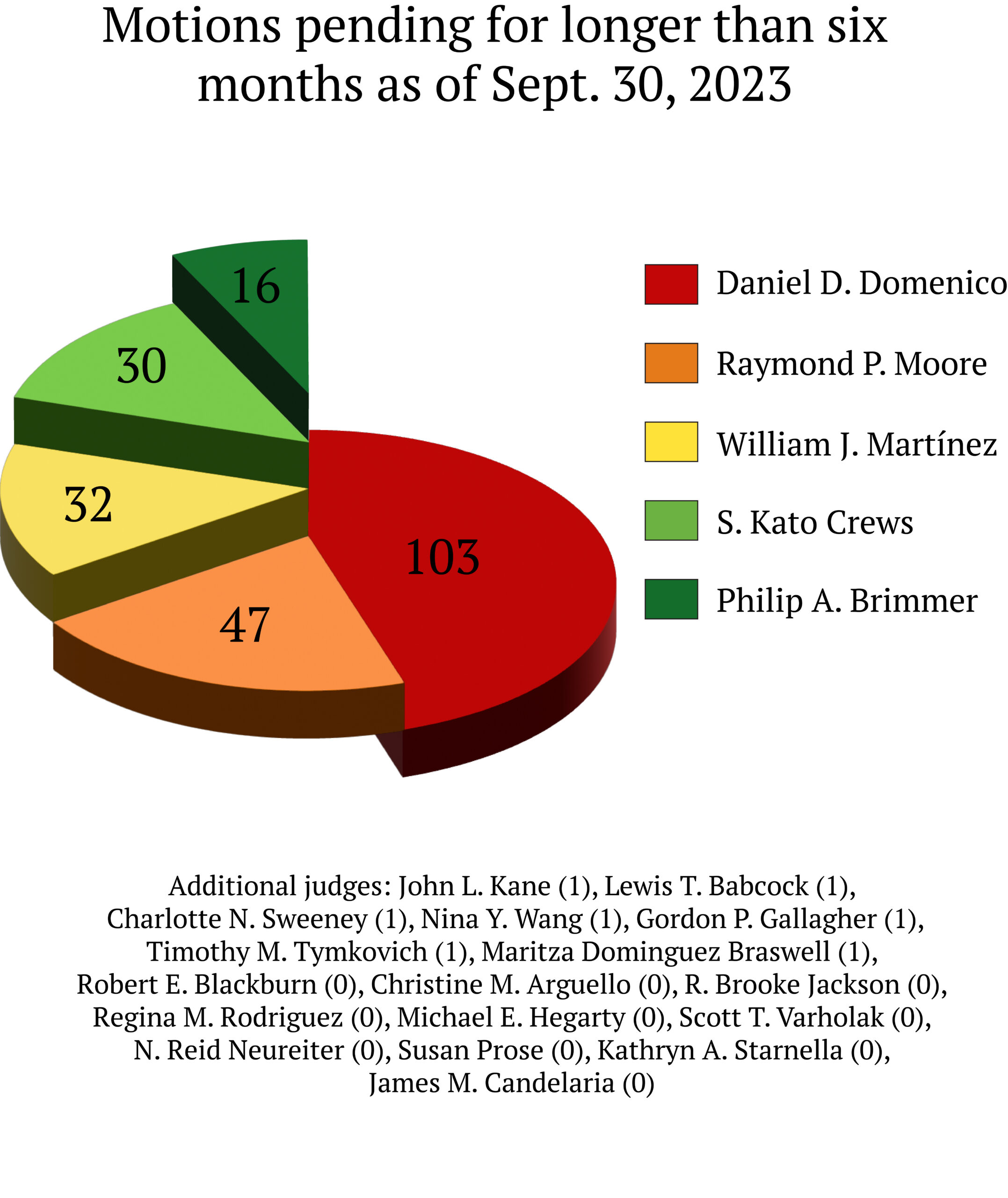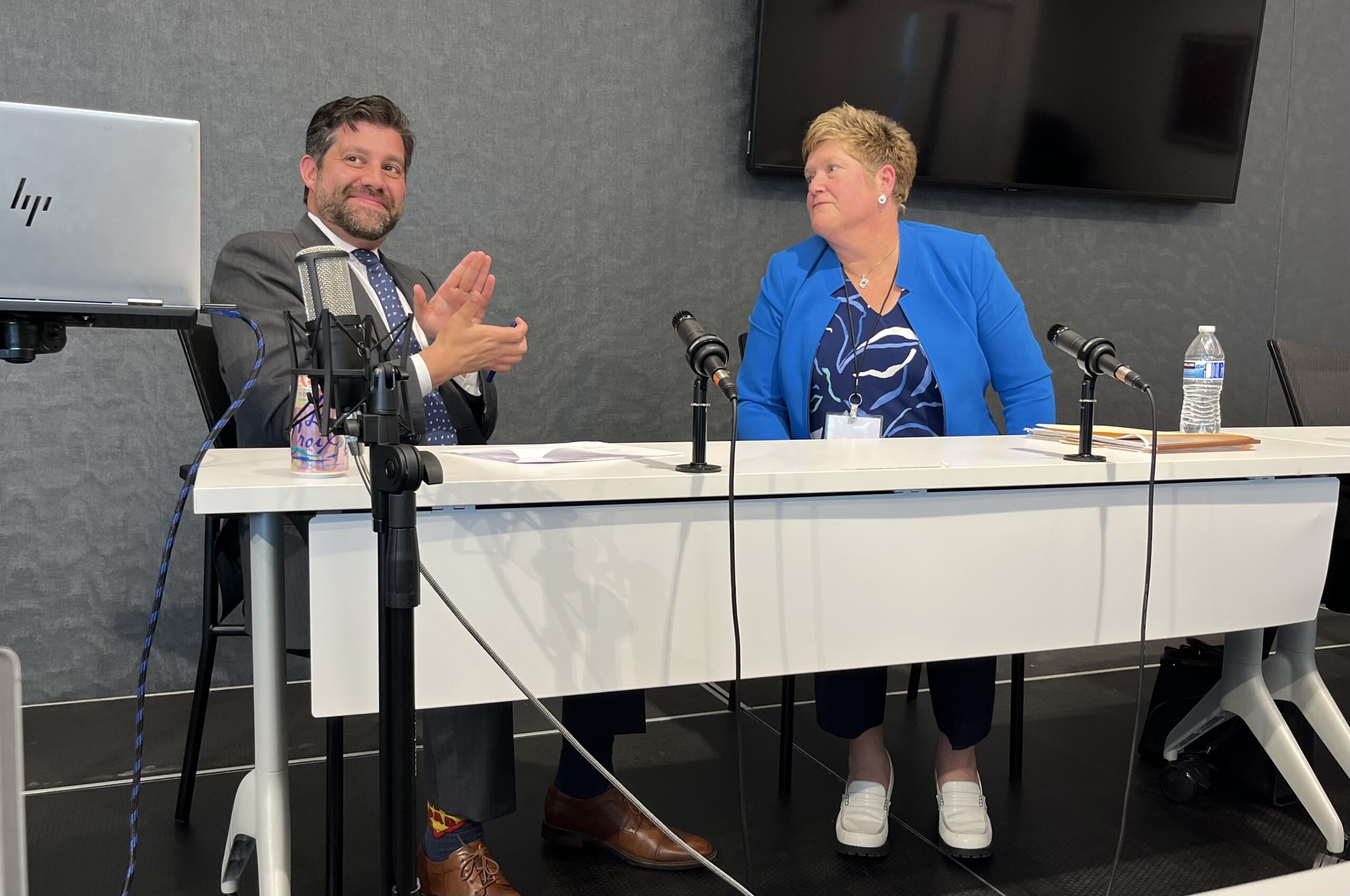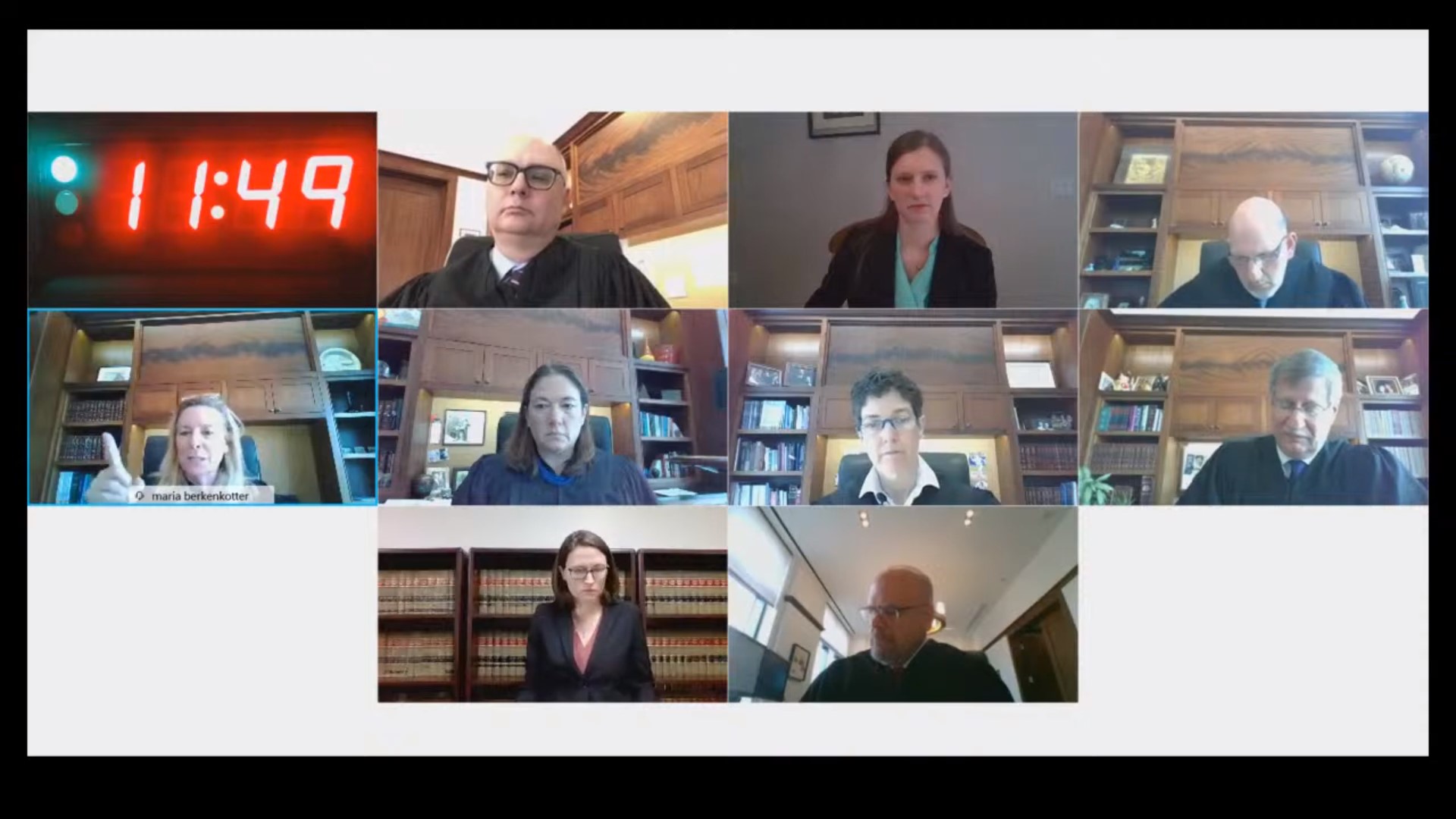Colorado’s primary elections under legal challenge, new data show federal judges’ delays | COURT CRAWL

Welcome to Court Crawl, Colorado Politics’ roundup of news from the third branch of government.
The Colorado Republican Party appeared in court last week seeking modifications to the state’s system for primary elections, and new data from the federal judiciary show the extent of some judges’ backlogs.
A clash over unaffiliateds
? In 2016, Colorado voters approved a ballot initiative to permit registered unaffiliated voters – the largest voting bloc – to participate in either the Democratic or Republican primaries. The GOP has mounted an official challenge to that law, Proposition 108, with a substantial portion of the party believing it is preferable for only Republicans to choose Republican nominees (on the legal theory that it is a constitutional violation for the state to force them to accept unaffiliateds into their primary).
? Representing the party is lawyer John C. Eastman, who was charged criminally alongside Donald Trump in Georgia for an alleged scheme to overturn Trump’s 2020 election loss.
? While the Colorado GOP argued the relief valve for excluding unaffiliated voters – a 75% majority vote to opt out of the primary – is effectively no option at all, some Republican leaders who supported keeping the primary testified that the GOP’s central committee has routinely achieved that threshold on other matters.

? The Colorado Secretary of State’s Office, meanwhile, contended it would be detrimental for a judge to order changes to the state’s semi-open primary system now, when the presidential primary is currently ongoing and the primary election for all other offices will be starting within months.
Federal court delays
? Thanks to a 1990 law, federal trial judges are subject to twice-yearly reports that show how many motions are pending in their assigned civil cases for longer than six months. On Colorado’s U.S. District Court, five district judges represented nearly all of the backlog, with Judge Daniel D. Domenico having more than 100 motions undecided after six months. Several motions have also been sitting for years with no action.
? “In this case, if we get a ruling denying our motion right now, we now have to litigate over the next year to two years and then get a trial date in a year to two years. It’s not absurd to think we’ll get into a seven-year litigation,” said attorney Michael J. Laszlo, who has been waiting three years for a decision on a motion to dismiss. “That’s crazy. The better half of a decade.”

In other federal news
? Judge Charlotte N. Sweeney, a Biden administration appointee to the U.S. District Court, sat down with an audience of lawyers to explain how things work behind the scenes. Addressing Colorado Politics’ reporting on delays, she acknowledged some judges have fallen chronically behind, but noted the toll that criminal cases (and their speedy trial deadlines) take on judges’ time and capacity to hear civil matters.
? Sweeney also disclosed that she works “50-ish” hours per week and has a “work hard/play hard” mentality: “I may not come out of my office for eight hours because I’m writing up my oral argument preparation. I believe in highly focused work. But then we might go to the movies,” she said, labeling the activity as “team building.”

michael.karlik@coloradopolitics.com
? The federal trial court has enlisted the assistance of U.S. Magistrate Judge James P. O’Hara of Kansas to fill in during a vacancy on the magistrate judge bench. O’Hara has previously helped out in Colorado before with the criminal docket, but now he will be handling a portion of the cases assigned to former U.S. Magistrate Judge S. Kato Crews, who the Senate confirmed to a district judgeship this month.
? A federal judge rejected a defendant’s last-minute gambit to admit liability – with strings attached – in a breach-of-contract case, instead agreeing the 18-day jury trial would go ahead as planned.
Heard on appeal
? The Colorado Supreme Court ruled that defense attorneys in postconviction cases can abandon some of their clients’ claims for relief without their consent, unless those lawyers explicitly ask a judge to consider every claim lodged, including those their clients raised when they were unrepresented.
? The Supreme Court confirmed the regulations dividing up property tax revenue in “urban renewal” areas, which funnel more money to local governments than urban renewal authorities believed appropriate, are legal.

? The state’s Court of Appeals clarified that the same factors judges must use when deciding whether to extend an adult defendant’s speedy trial deadline also apply to juvenile cases.
? An accused defendant’s no-contact order with his child must be based on compelling circumstances and be the least restrictive option possible so as to remain constitutional, the Court of Appeals ruled for the first time.
? The Court of Appeals clarified what “imminent danger” looks like in lawsuits from incarcerated plaintiffs. Satisfying that threshold will allow certain prisoners to proceed with their lawsuits without paying the required filing fees in advance.
? A Mesa County judge’s errors prompted the Court of Appeals to reverse the multimillion-dollar award and order a new trial against a doctor who used his own sperm to artificially inseminate patients in the 1970s and ’80s.
? In a new answer to an old question, the Court of Appeals decided trial judges who close their courtrooms to some or all members of the public, but who fail to justify it with appropriate findings, may have a second chance to explain their reasoning on appeal without prompting a new trial.

Vacancies and appointments
? Applications are due by March 8 to succeed retiring District Court Judge Patrick Butler in Boulder County.
? Applications are due by Feb. 13 to succeed retiring Mineral County Court Judge Ruth M. Acheson. The position is part time.
? Finally, applications are due by Feb. 12 to succeed retiring Otero County Court Judge Douglas R. Manley. The position is also part time.
? The Denver-based U.S. Court of Appeals for the 10th Circuit has advertised a vacancy for circuit executive, who is the head administrative employee for the court. Applications are due by Feb. 12, with an expected start date in July.
Miscellaneous proceedings
? This week, the First Judicial District (Jefferson and Gilpin counties) will hear the first cases in its new Competency Court, which will generally be limited to defendants accused of lower-level felonies who are not determined to be a danger to themselves or others, and who are awaiting services to become competent to stand trial.













